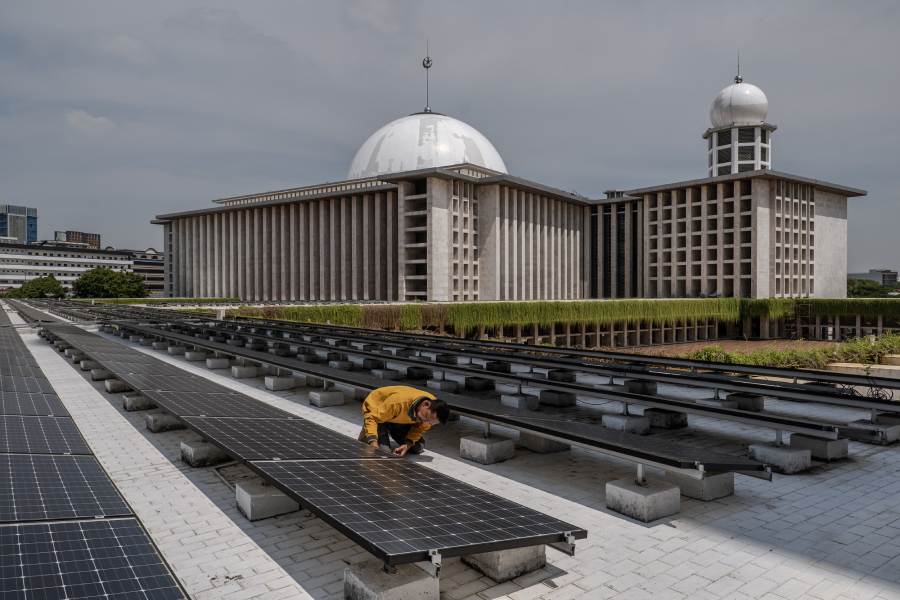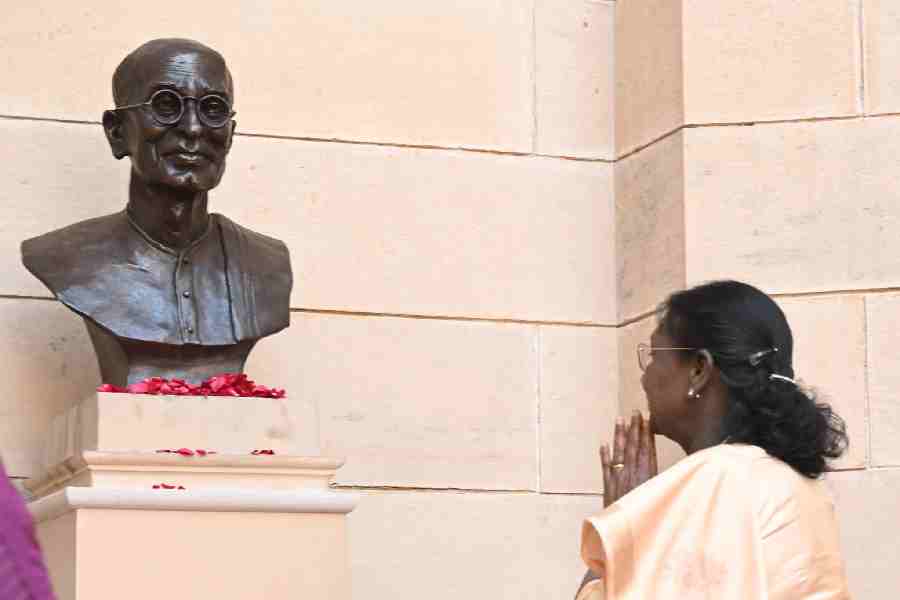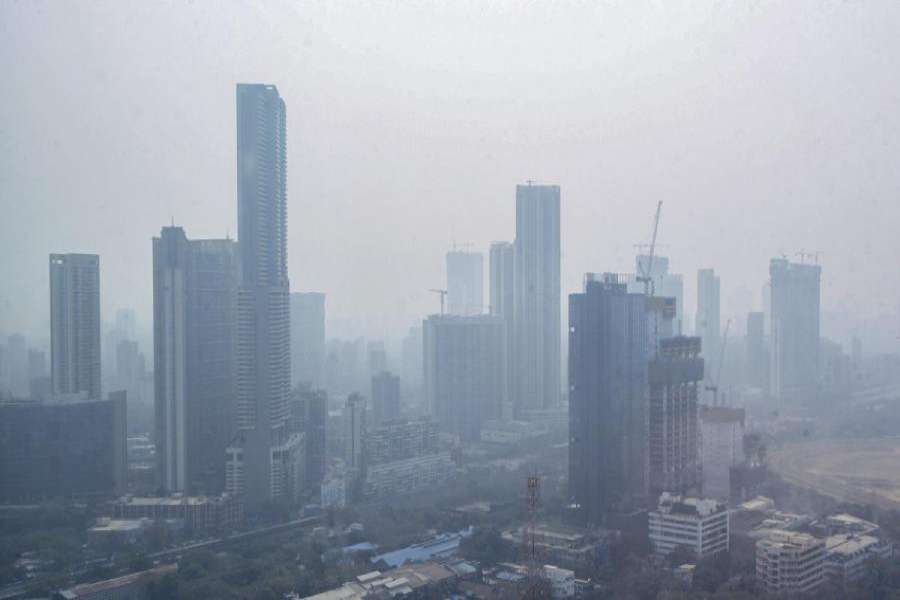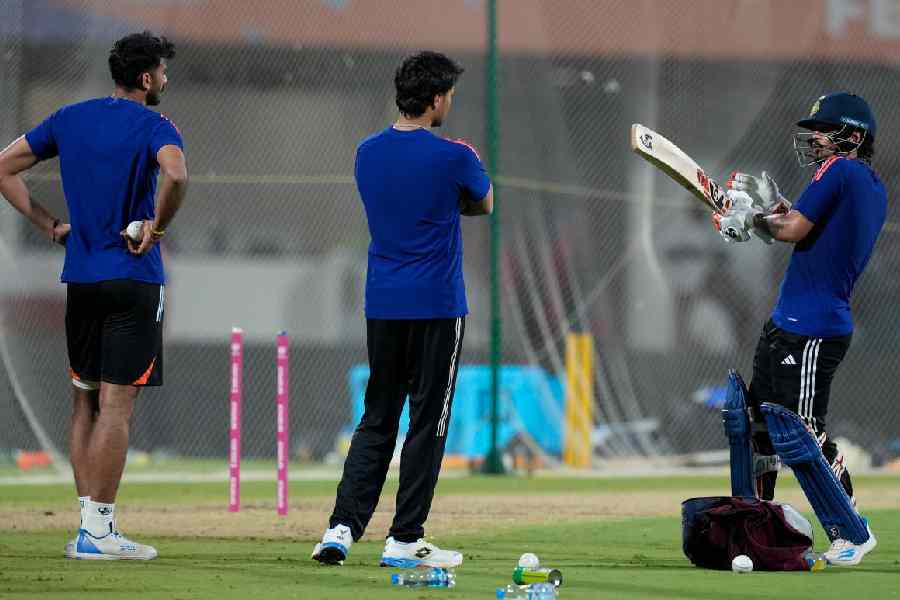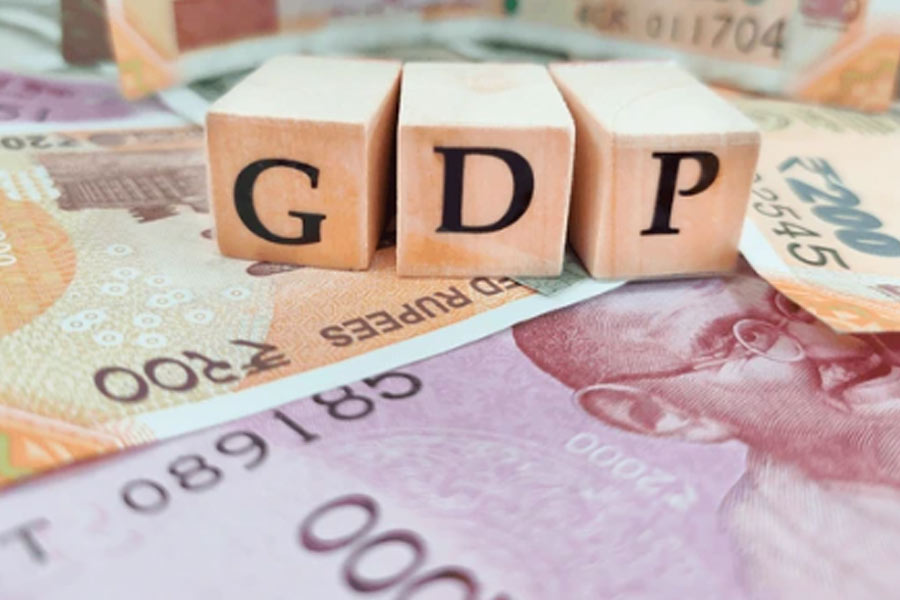The faithful gathered in an imposing modernist building, thousands of men in skullcaps and women in veils sitting shoulder to shoulder. Their leader took to his perch and delivered a stark warning.
“Our fatal shortcomings as human beings have been that we treat the earth as just an object,” Grand Imam Nasaruddin Umar said. “The greedier we are toward nature, the sooner doomsday will arrive.”
Then he prescribed the cure as laid out by their faith, which guides almost one-quarter of humanity. Like fasting during Ramadan, it is every Muslim’s Fard al-Ayn, or obligation, to be a guardian of the earth. Like giving alms, his congregants should give waqf, a kind of religious donation, to renewable energy. Like daily prayers, planting trees should be a habit.
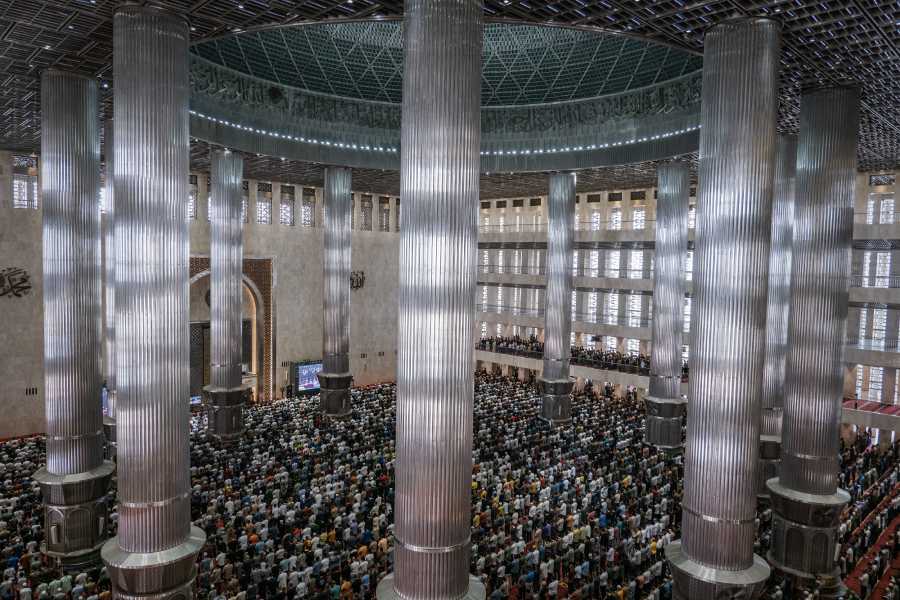
Friday Prayer at Istiqlal Mosque in Jakarta, Indonesia on Dec. 15, 2023 Ulet Ifansasti/The New York Times
The environment is a central theme in the sermons of Nasaruddin, the influential head of the Istiqlal Mosque in Jakarta, Indonesia, who has tried to lead by example. Dismayed by the trash sullying the river that the mosque sits on, he ordered a cleanup. Shocked by astronomical utility bills, he retrofitted Southeast Asia’s largest mosque with solar panels, slow-flow faucets and a water recycling system — changes that helped make it the first place of worship to win a green building accolade from the World Bank.
The grand imam says he is simply following the Prophet Muhammad’s instructions that Muslims should care about nature.
He is not alone in this country of more than 200 million people, the majority of them Muslims, in trying to kindle an environmental awakening through Islam. Top clergy have issued fatwas, or edicts, on how to rein in climate change. Neighborhood activists are beseeching friends, family and neighbors that environmentalism is embedded in the Quran.
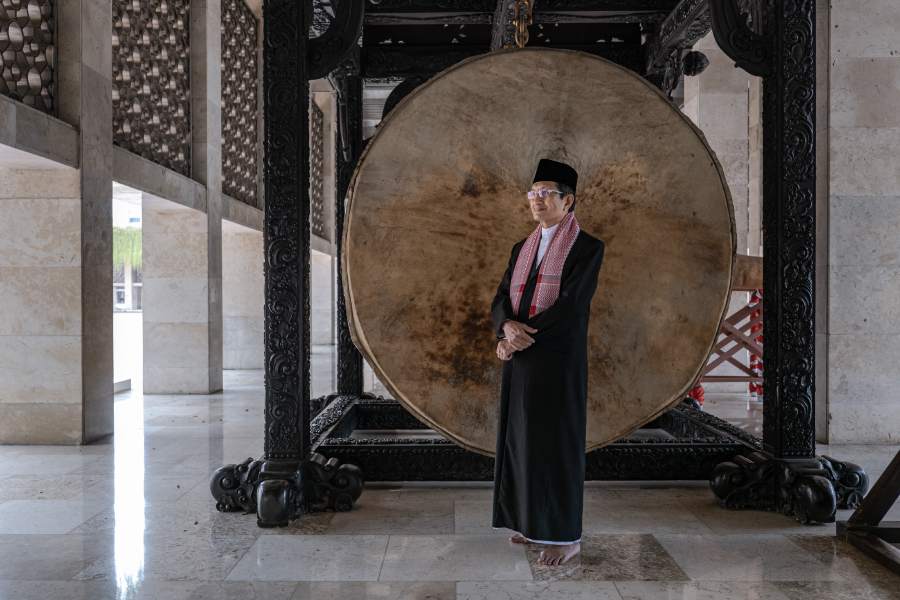
Grand Imam Nasaruddin Umar, who says he is following the Prophet Muhammad’s instructions that Muslims should care about nature, at Istiqlal Mosque in Jakarta, Indonesia on Dec. 15, 2023 Ulet Ifansasti/The New York Times
“As the country with the largest number of Muslim people in the world, we have to set a good example for Muslim society,” Nasaruddin said in an interview.
Some clerics see environmentalism as peripheral to religion. And surveys suggest there is a widespread belief among Indonesians that climate change is not caused by human activity.
But educating 200 million Muslims, the proponents of the Green Islam movement say, can drive the change.
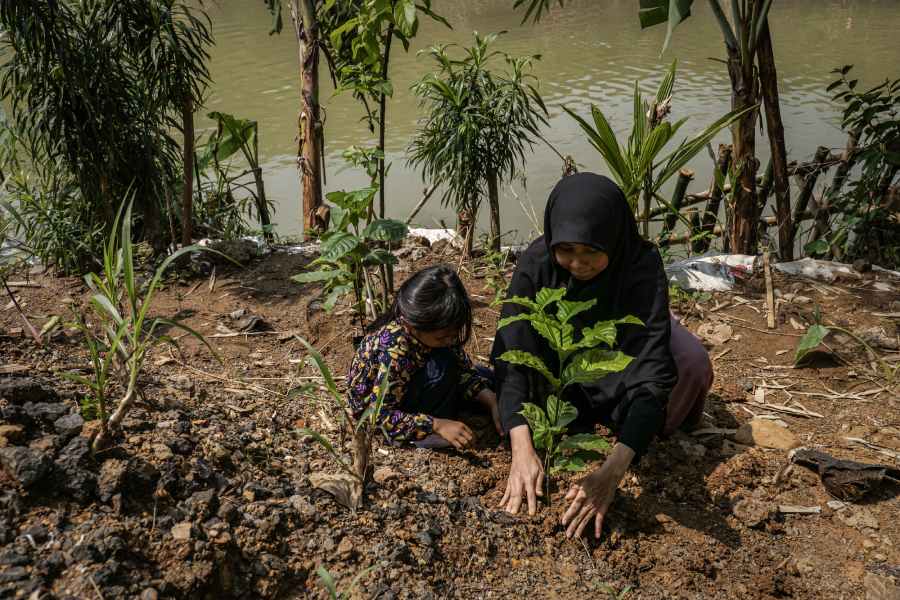
A mother and daughter plant trees on the banks of the Cikeas River in Bogor, West Java, Indonesia on Dec. 13, 2023 Ulet Ifansasti/The New York Times
“People will not listen to laws, they don’t care,” said Hayu Prabowo, the head of environmental protection at the Indonesian Ulema Council, the nation’s highest Islamic authority. “They listen to religious leaders because their religious leaders say you can escape worldly laws, but you cannot escape God’s laws.”
The fatwas issued by the council are not legally binding, but he said they have had a notable effect. He pointed to studies that found that people living in areas with rich forests and peatlands are now more aware that it is wrong to clear these lands because of the fatwas declaring these activities as haram, or forbidden.
Clerics have not always been on board with the movement. Two decades ago, a regional branch of the Ulema Council issued a fatwa against Aak Abdullah al-Kudus, an environmentalist in East Java Province who tried to combine a tree-planting campaign with the celebration of the Prophet Muhammad’s birthday. He also received death threats.
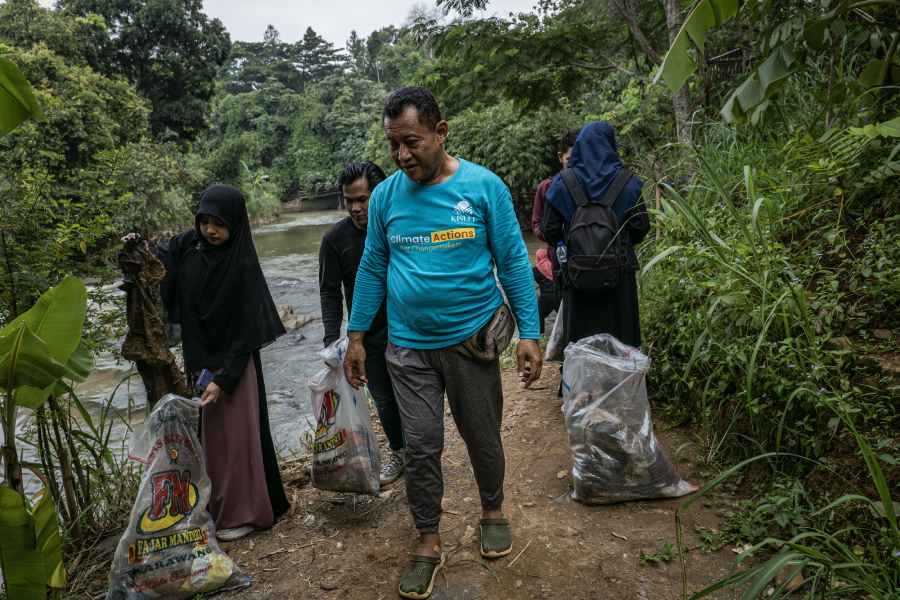
Hayu Prabowo, the head of environmental protection at the Indonesian Ulema Council, cleans up the banks of the Cikeas River with community members in Bogor, West Java, Indonesia on Dec. 13, 2023 Ulet Ifansasti/The New York Times
But support for Aak grew over time, and he went on to start the Green Army, a group of tree-planting volunteers working to reforest Mount Lemongan, a small volcano where 2,000 hectares of protected forest had been cut down. Today it is covered with verdant bamboo and fruit trees.
“Our task is to be khalifahs, the guardians, of the earth,” Aak said. “That is the mission of Islam.”
The Istiqlal Mosque is a testament to what can be achieved. Nasaruddin said installing 500 solar panels has lowered the mosque’s power bill by 25%. With slow-flow faucets and a water recycling system, worshippers use far less water to cleanse themselves before prayers.
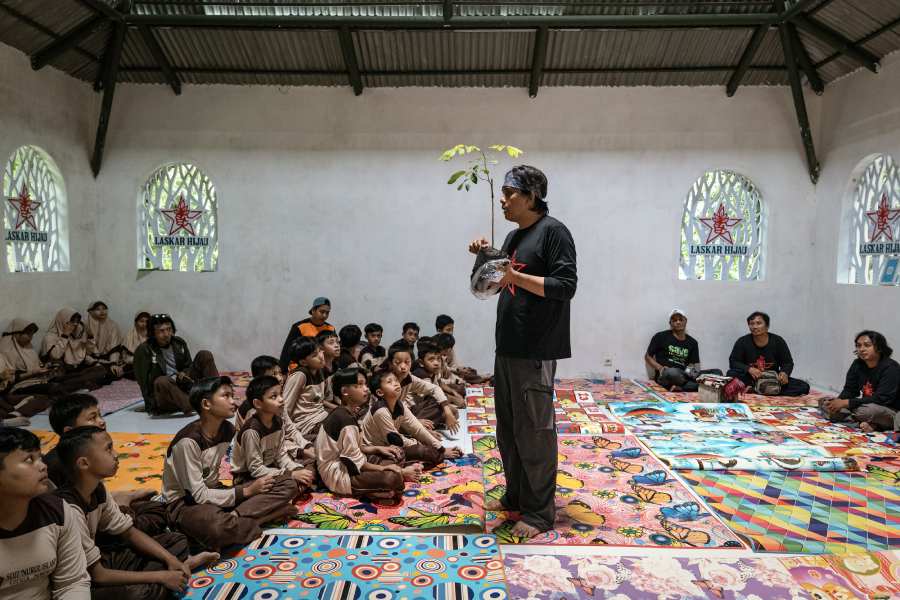
Aak Abdullah Al-Kudus, an environmentalist in East Java Province, discusses tree planting at an elementary school in Lumajang, East Java, Indonesia on Dec. 12, 2023 Ulet Ifansasti/The New York Times
It was the first place of worship in the world to be awarded a green building certificate by the World Bank’s International Finance Corp. The grand imam said that he wants to help transform 70% of Indonesia’s 800,000 mosques into “eco-masjids,” or ecological mosques.
The New York Times News Service

